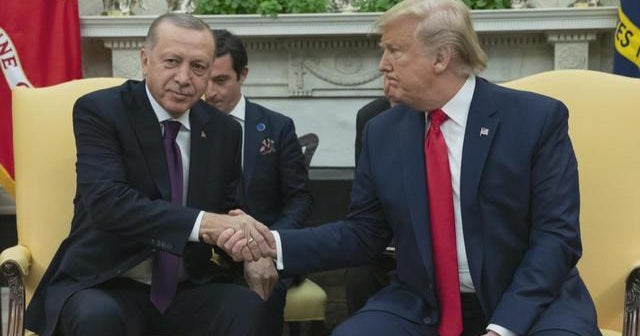
During a White House meeting with President Trump in November 2019, Turkish President Recep Tayyip Erdogan took an unexpected and controversial action. He reportedly played a video in the Oval Office that contained anti-Kurdish propaganda. This move immediately sparked outrage and raised serious questions about diplomatic decorum and the nature of the US-Turkey relationship. The incident, confirmed by CBS News, highlighted the complex and often strained ties between the two nations.
The video’s content, specifically targeting the Kurds, was particularly sensitive given the ongoing conflicts in the region and the US’s own involvement with Kurdish forces in the fight against ISIS. The showing of such material in the Oval Office, a symbol of American power and diplomacy, was considered highly inappropriate by many observers. The act was seen as a blatant attempt to influence American policy and potentially undermine the US’s support for Kurdish allies.
The details surrounding the meeting remain somewhat shrouded in mystery, with differing accounts emerging from various sources. However, the core event—the playing of the anti-Kurdish video—is undeniable, and its implications continue to be debated. The incident added another layer of complexity to the already fraught relationship between the US and Turkey, raising concerns about the Trump administration’s approach to foreign policy and its willingness to engage with controversial actions from its allies.
The episode serves as a stark reminder of the challenges inherent in navigating international relations. It underscores the importance of maintaining diplomatic protocols and raises questions about the appropriate boundaries of behavior during high-level meetings. The incident also sheds light on the ongoing tensions in the Middle East and the delicate balancing act the United States often undertakes in its foreign policy decisions. The long-term consequences of Erdogan’s actions and the Trump administration’s response remain a subject of ongoing discussion and analysis.










